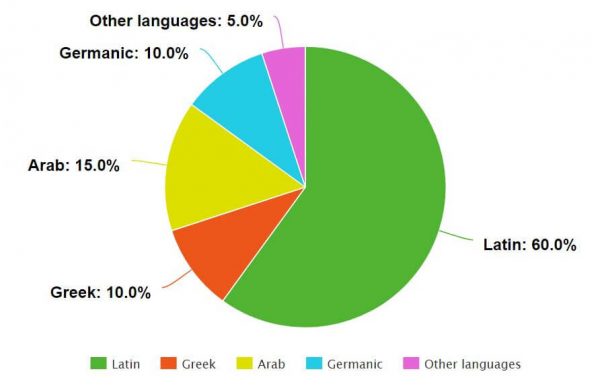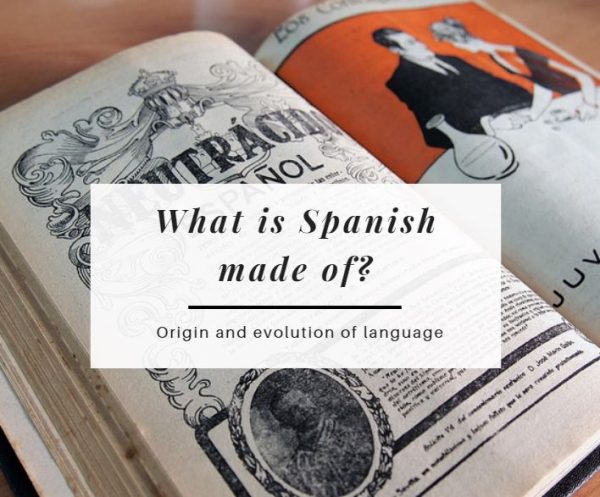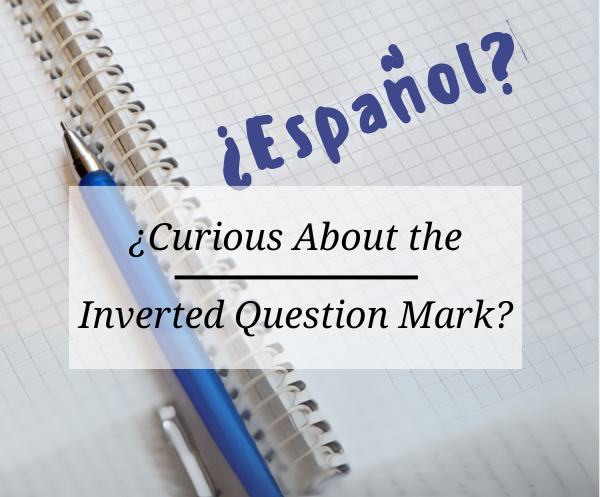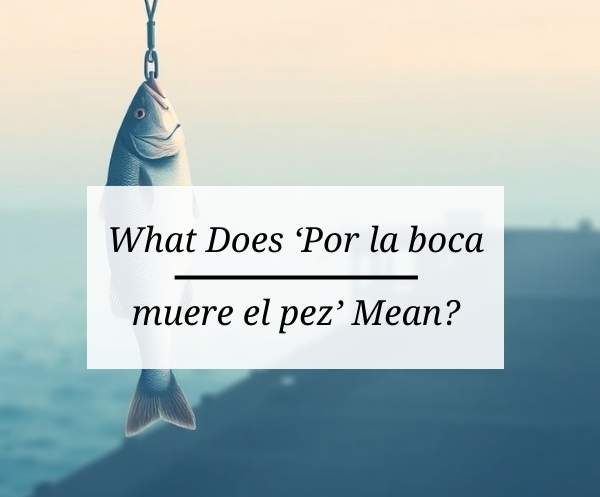Short answer: Mostly Latin.

Where does Spanish come from?
The Spanish language comes 60% from Latin, 15% from Arabic, 10% from Greek, 10% from Germanic, and 5% from other languages.
Bear in mind that any language is a living system that changes through time, and just like any live organism, it experiences many stages from its origin, to its consolidation, and finally its decline.
One way of knowing and understanding the origin and process of formation and consolidation of Spanish is by approaching the historical context surrounding its birth and development.
The Iberian Peninsula, in its origins, was a territory inhabited by various peoples who made contributions to the language:
- The Iberians initially dominated a large part of the territory.
- The Celts from Gaul (eastern France) and the Germanic zones, who settled in the Northwest and the center, influenced the ethnicity and culture of the peninsular inhabitants. The Celtic people merged with the Iberians and formed the Celtiberian nucleus.
- The Phoenicians founded several coastal cities in the region and gave the territory the name of Hispania.
- The Greeks arrived around 700 BC and added their own influence through the Greek language.
- The Carthaginians began their conquest around 500 BC. They penetrated the territory, seeking to defeat Rome during the First Punic War.
- The Basques lived in a wide area of the Pyrenees that stretched north towards the Garonne River, in modern-day France. The Basque language was nourished with Latinisms but also made an impact in the Castillian or Spanish language.
Spanish words from these languages
Iberian
Cerro, Cazuno.
Greek
Evangelio, Angel, Mártir, Acústica, Alergia, Citara, Diatermia, Espía.
Celtic
Camisa, Carpintero, Vasallo, Cabaña, Alondra, Perro.
Germanic
Ramiro, Alvaro, Falda, Guerra, Heraldo, Guardia, Jabón, Yelmo.
Arabic
Jerga, Acequia, Maravedí, Alhelí, Alférez, Tahúr, Alcalde, Albañil, Jabalí, Alacrán.
Basque
Gorra, Pizarra, Guijarro, Urraca, Boina.
Latin
Labrar, Siesta, Siglo, Sexto, Viejo.





